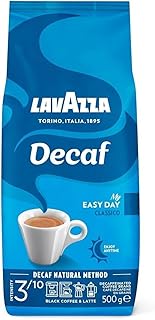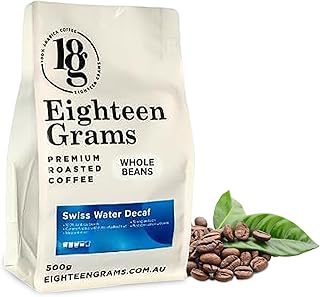Decaf coffee, once shunned by coffee enthusiasts, is experiencing a resurgence in popularity, particularly among younger generations seeking a caffeine-free option. The shift in attitudes towards decaf has been gradual but significant, with more consumers embracing the idea of enjoying coffee without the buzz. This changing perception is evident in the increasing demand for decaffeinated coffee products in markets like North America and the United Kingdom.
Erin Reed, Director of Marketing at Swiss Water Decaffeinated Coffee, notes that decaf is gaining respect among both coffee drinkers and roasters, driven by a growing awareness of health impacts and a desire for more balanced energy. A study conducted by Swiss Water revealed that consumers aged 18 to 40 are turning to decaf to improve sleep quality, reduce anxiety, and address various health concerns. This trend is not limited to specific regions but is observed globally, indicating a broader shift towards decaf consumption.
Recognizing the evolving consumer preferences, coffee companies are introducing more decaffeinated options to cater to this expanding market. STōK Cold Brew Coffee, a leading ready-to-drink coffee brand, recently launched decaf products in response to consumer demand for customization and personalization. By offering decaf versions of their popular flavors, STōK aims to attract new consumers and extend coffee consumption beyond the usual morning routine.
The perception of decaf coffee as inferior in quality is gradually changing, with more roasters focusing on providing high-quality decaffeinated options. Reed emphasizes that decaf coffee can rival its caffeinated counterparts in taste and quality, provided that a meticulous decaffeination process is followed. The use of chemical-free decaffeination methods is becoming more prevalent, addressing concerns about the safety of traditional solvent-based processes.
Industry experts like James Hoffmann have conducted experiments to showcase that the differences between caffeinated and decaffeinated coffee are often influenced more by the roasting process than the decaffeination method. This highlights the importance of using premium green coffee beans and skilled roasting techniques to produce exceptional decaf coffee that rivals its caffeinated counterparts in aroma and flavor.
Events like the Specialty Coffee Association’s Coffee Championships further underscore the growing acceptance and appreciation of decaf coffee in the industry. The recognition of decaf coffee in prestigious competitions reflects a broader shift towards acknowledging the quality and potential of caffeine-free brews. The rising market value of decaf coffee, projected to reach billions by 2032, indicates a sustained interest in decaffeinated products and a promising future for this segment of the coffee industry.
Overall, the resurgence of decaf coffee signifies a significant change in consumer preferences and industry trends. With a focus on quality, taste, and health considerations, decaf coffee has shed its ‘uncool’ image and emerged as a viable and appealing option for a diverse range of coffee enthusiasts.
📰 Related Articles
- Experts Warn Against Coffee Enemas for Health Benefits
- Weighted Vests: Experts Debate Benefits for Fitness and Health
- Wearing Quality Lingerie for Mental Health and Self-Empowerment
- Unlocking the Health Benefits of Chia Seeds: Expert Insights
- Unlocking the Health Benefits of Chia Seeds: A Nutrient Powerhouse
📚Book Titles
- Extraterrestrial Epochs: Tracing UFOs Influence Through History and Humanity
- Riffs of Rebellion: The Shocking Untold Story of Thrash Metal’s Rise, Rage, and Resilience
- The Batman Method: Discipline, Duality, and the Art of Becoming a Legend
- The Gentleman Thief: The Daring Heists and Fall of Arthur Barry






